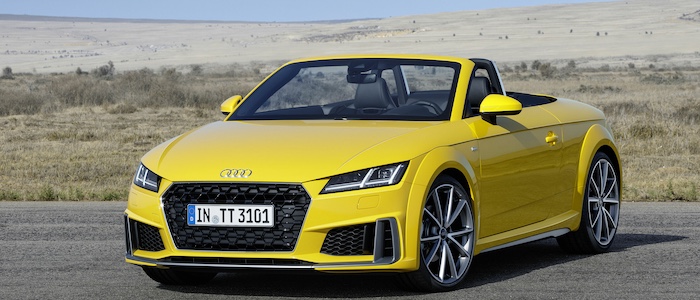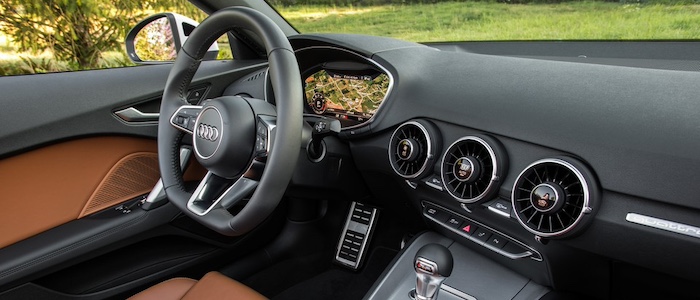Compare two cars
Compare any two cars and get our Virtual Adviser™ opinion
Dimensons & Outlines
Check vehicle history
Engine
Performance (manual gearbox)
Performance (automatic gearbox)
Expenses
Virtual Adviser's™ opinion
Two significantly similar cars, no doubt about that. Still, each one has something different to offer. Having both cars powered by petrol engines and utilizing the 2-door cabriolet body style within the same 'Sports car' segment, the only major difference here really is their wheel drive configuration (4 x 4 for the Audi and rear in the case of the BMW). The first one has a Volkswagen-engineered powertrain under the hood, a 4-cylinder, 16-valves 320hp unit, while the other one gets its power and torque from a 4-cylinder, 16-valves 252hp engine designed by BMW.
SafetyThe fact that the Audi got tested by the European New Car Assessment Programme (Euro NCAP), while the other contender didn't, offers a slight advantage, as the 4-star rating is better than none. That aside, let's consider some other aspects which affect safety. Both vehicles belong to the sports car segment, which is generally classifying them somewhere in the middle safety-wise, but that fact doesn't break the tie between the two cars. On the other hand, when it comes to weight, a factor that most people underestimate, 2 Series Coupe offers a marginal difference of 4% more metal.
ReliabilityManufacturers have been building their reliability reputation for decades now and, generally speaking, it appears that both brands display similar results in faults and breakdowns, when all the models are taken into account. That's the official data, while our visitors describe reliability of Audi with an average rating of 4.2, and models under the BMW badge with 4.1 out of 5. Unfortunatelly, I don't have enough insight that would allow me to comment in more details on the specific models level. That apart, owners of different cars powered by the same engine as Audi TT rank it on average as 3.0, while the one under the competitor's bonnet gets 4.7 out of 5.
Performance & Fuel economyAudi is undoubtly more agile, reaching 100km/h in 1.1 seconds less than its competitor. Still, it lacks the power to win the top speed competition, topping at 250 kilometers per hour, exactly the same as the other car does. When it comes to fuel economy an obvious choice would be 2 Series Coupe, averaging around 6.2 liters of fuel per 100 kilometers (46 mpg), in combined cycle. That's 39% difference compared to Audi TT!
Verdict
BMW appears just a bit more reliable, although the difference is truly marginal. The most important thing when deciding between any two vehicles should always be safety, both passive and active. In my opinion, everything taken into account, Audi TT offers much better overall protection, which launches it ahead of the other contender. It all continues in the same direction, with Audi being considerably quicker, thus putting more smile on driver's face. It does come at a cost though, and that's the fuel consumption... No mistake, whatever you decide here, but I'd still go for the BMW. Anyway, that's the most objective conclusion I could've came up with and it's based solely on the information found on this website. Aspects such as design, practicality, brand value and driving experience are there for you to measure them out. I suggest you spend two more minutes in order to find out which car, based on your needs and budget, would be picked by the virtual adviser™, among thousands of similar, yet so different vehicles.


































